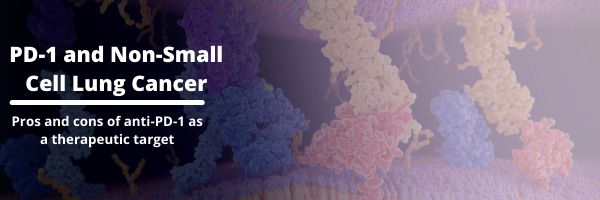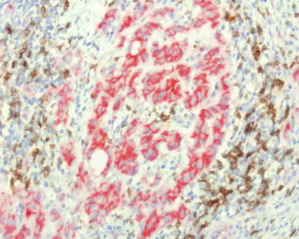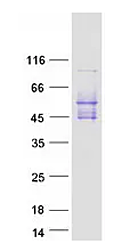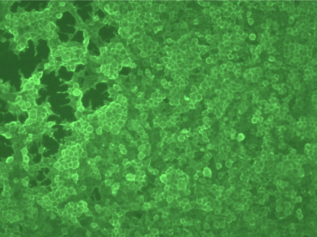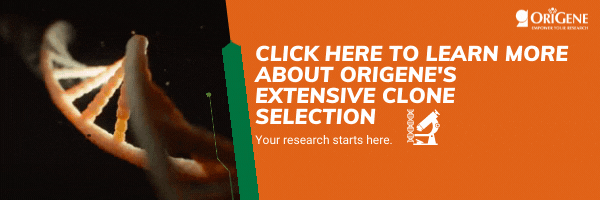OriGene社 How PD-1 inhibition could be negatively affecting your lung cancer patients
|
PD-1, also known as the programmed cell death protein 1, is an immune-inhibitory receptor expressed in activated T-cells. When this receptor comes into contact with its ligand, PD-L1, it induces apoptosis in T-cells and stimulates anti-inflammatory pathways.
While PD-1 plays a role in preventing autoimmunity, it can also inhibit important anti-tumor responses leading to cancer cell proliferation. PD-1 inhibition has been shown to be a successful therapy in the treatment of non-small cell lung cancer (NSCLC) due to its ability to restore T-cell anti-tumor mechanisms. Although there are currently 5 FDA-approved anti-PD-1 drugs, this treatment is not without disadvantages. A paper published by Su et. al, reported that anti-PD-1 drugs can result in increased inflammatory responses that affect the skin, liver, skeletal muscles, and even result in immune-related encephalitis. Understanding the extent of these side effects is imperative in order to limit patient discomfort during treatment. Click here to read the article. Take-Away
Anti-PD-1 treatment offers a promising solution when used in addition to chemotherapy, but the negative side-effects cannot be ignored. More research is needed on PD-1 and its role in immunity, as well as the long-term effects of its inhibition.
|
Fount of Information は、新商品、新規取扱メーカーなどの情報をいち早く紹介するコンテンツです。情報発信のスピードを重視しているコンテンツのため、現時点で法規制や取り扱いを確認できていない商品、定価を設定できていない商品があります。ご要望やご照会を受けた商品について、法令整備や在庫の充実を図ります。



